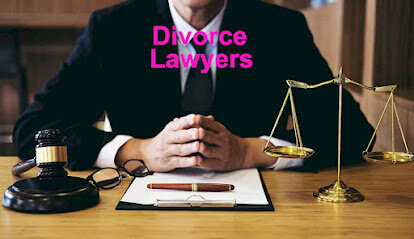Best Real Estate Due Diligence Lawyers in New York
Share your needs with us, get contacted by law firms.
Free. Takes 2 min.
Free Guide to Hiring a Real Estate Lawyer
Or refine your search by selecting a city:
List of the best lawyers in New York, United States
United States Real Estate Due Diligence Legal Questions answered by Lawyers
Browse our 1 legal question about Real Estate Due Diligence in United States and read the lawyer answers, or ask your own questions for free.
- What is owner of condo units obligation as far as damage to the condo below their unit.
- The unit above my condo is managed by a Property Management company, and it was rented. During the time it was rented, there were water leaks that damaged my ceilings, and the Management Company. refuses to fix the ceiling so that it matches the rest of the ceiling. Even though... Read more →
-
Lawyer answer by Horus Legal Sulotion
Thank you for sharing the details of your situation. Based on the circumstances you described, you may have grounds to escalate the matter legally. You can file a case to request the appointment of a government engineer from Dubai Municipality...
Read full answer
About Real Estate Due Diligence Law in New York, United States
Real estate due diligence in New York refers to the process of investigating and evaluating a potential real estate transaction before finalizing the deal. This comprehensive examination helps buyers and investors uncover any legal, financial, or physical issues that could affect the property's value, use, or ownership. The due diligence process in New York often includes reviewing title records, zoning regulations, environmental concerns, property taxes, liens, existing leases, and physical inspections. Performing thorough due diligence is essential in a dynamic market like New York to ensure informed decision-making and to protect your investment.
Why You May Need a Lawyer
Real estate due diligence in New York can be complex and challenging, particularly for those unfamiliar with legal processes. Here are some common situations where hiring a lawyer is highly recommended:
- You are purchasing commercial or multi-family real estate
- You need to review title records or clear liens and encumbrances
- You want to verify compliance with zoning and land use laws
- You are concerned about environmental liabilities or hazardous materials
- You are negotiating or reviewing a real estate purchase agreement
- Your transaction involves a co-op, condominium, or homeowners association
- You need guidance on property tax and assessment issues
- You suspect potential legal disputes involving the property, such as boundary or easement conflicts
An attorney knowledgeable in New York real estate law can safeguard your interests, uncover hidden risks, explain your rights and obligations, and help you avoid costly mistakes during the process.
Local Laws Overview
New York's real estate due diligence process is shaped by several state and local laws. Key aspects include:
- Title Transfers and Recording: New York mandates precise recording of property ownership transfers, and any prior liens must be addressed before closing.
- Disclosure Requirements: Sellers of residential property must provide a Property Condition Disclosure Statement unless they choose to pay a credit to the buyer. However, most co-ops and some condos are exempt from this requirement.
- Zoning and Land Use: Each municipality and New York City borough has specific zoning and land use rules that can impact property utilization.
- Environmental Regulations: Buyers may need to assess risks of hazardous materials under state and federal laws, especially for commercial properties.
- Co-op and Condo Regulations: Transactions involving co-operatives and condominiums have unique rules, including board approvals and review of financial statements.
- Regulation of Building Conditions: New York City and other municipalities enforce strict codes on building safety, maintenance, and habitability that must be investigated during due diligence.
Failure to comply with these laws can result in unexpected liabilities, fines, or restricted property use.
Frequently Asked Questions
What is real estate due diligence and why is it important?
Real estate due diligence is the process of evaluating a property before purchase to identify any legal, financial, or physical issues that might affect the investment. It helps buyers make informed decisions and avoid costly problems after closing.
What are common components of due diligence in New York?
Due diligence in New York commonly involves title searches, lien investigations, property inspections, review of building code compliance, scrutiny of leases or occupancy agreements, examination of zoning regulations, review of co-op or condo board documents, and analysis of tax records.
Does New York require property disclosure by sellers?
Yes, New York requires sellers of most residential properties to provide a Property Condition Disclosure Statement, or they may offer a credit instead. There are some exceptions such as most co-ops.
What is a title search and why is it important?
A title search reviews public records to confirm the property's legal ownership and to check for any outstanding mortgages, liens, easements, or other claims. It ensures that the buyer will receive clear title to the property.
What environmental risks should buyers consider?
Buyers should investigate potential environmental hazards such as soil contamination, underground storage tanks, lead paint, or asbestos, especially when purchasing commercial properties or older buildings.
How do zoning laws affect my property purchase?
Zoning laws regulate how a property can be used. Non-compliance or restrictions could limit renovations, expansions, or intended use of the property. Zoning checks are an essential part of due diligence.
What is the difference between purchasing a condo and a co-op?
Condos represent actual ownership of real estate units, while co-ops involve buying shares in a corporation that owns the building. Co-op purchases require board approval and may involve stricter due diligence on financial and governance matters.
How long does the due diligence period last in New York?
The due diligence period varies based on negotiation, but typically ranges from a few days to several weeks between contract signing and closing.
Can I conduct due diligence without a lawyer?
Though not legally required, conducting due diligence without a lawyer increases risk, especially for complex transactions or when legal issues arise. A real estate attorney ensures all critical elements are reviewed and your interests are protected.
What if I discover problems during due diligence?
If significant issues are found, buyers may negotiate repairs or credits, adjust the purchase price, or even withdraw from the transaction depending on contract terms and contingencies.
Additional Resources
For more information or assistance with real estate due diligence in New York, consider these resources:
- New York State Bar Association - Real Property Law Section
- New York Department of State - Division of Licensing Services
- NYC Department of Buildings
- Office of the New York State Attorney General - Real Estate Finance Bureau
- Local real estate boards and REALTORS® organizations
- Community and housing advocacy groups
These organizations provide guidance, legal forms, regulatory information, and directories for qualified professionals.
Next Steps
If you are considering a real estate purchase or investment in New York and need legal guidance for due diligence:
- Gather relevant property information, transaction documents, and questions.
- Consult with a licensed New York real estate attorney who specializes in due diligence.
- Schedule an initial consultation to discuss your goals and concerns.
- Work with your attorney to develop a customized due diligence checklist.
- Carefully review all findings and address any legal or financial risks before committing to a transaction.
Proactive legal counsel is key to ensuring a smooth and secure real estate transaction in New York.
Lawzana helps you find the best lawyers and law firms in New York through a curated and pre-screened list of qualified legal professionals. Our platform offers rankings and detailed profiles of attorneys and law firms, allowing you to compare based on practice areas, including Real Estate Due Diligence, experience, and client feedback.
Each profile includes a description of the firm's areas of practice, client reviews, team members and partners, year of establishment, spoken languages, office locations, contact information, social media presence, and any published articles or resources. Most firms on our platform speak English and are experienced in both local and international legal matters.
Get a quote from top-rated law firms in New York, United States — quickly, securely, and without unnecessary hassle.
Disclaimer:
The information provided on this page is for general informational purposes only and does not constitute legal advice. While we strive to ensure the accuracy and relevance of the content, legal information may change over time, and interpretations of the law can vary. You should always consult with a qualified legal professional for advice specific to your situation.
We disclaim all liability for actions taken or not taken based on the content of this page. If you believe any information is incorrect or outdated, please contact us, and we will review and update it where appropriate.
Browse real estate due diligence law firms by city in New York
Refine your search by selecting a city.















